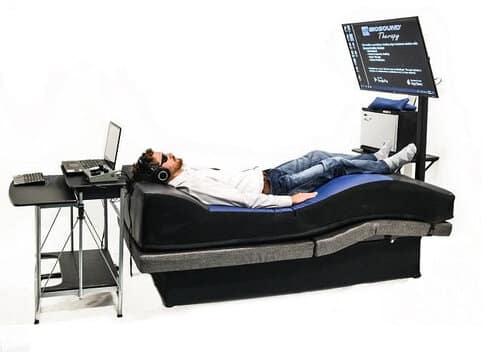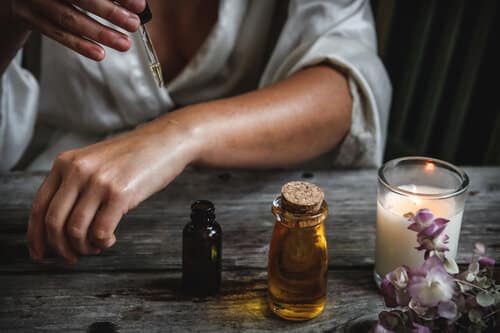Request a Callback
"*" indicates required fields
Cocaine
Are you or someone you know struggling with cocaine addiction? It’s a devastating cycle that affects not only the individual using the drug but also their loved ones and communities. However, there is hope. Cocaine addiction treatment has the power to transform lives and bring about lasting recovery.
At Relevance Recovery, we will provide comprehensive care that addresses both addiction and mental health concerns, treatment programs can pave the way for lasting recovery.
What Is Cocaine?
Cocaine is a highly addictive stimulant drug that affects the central nervous system. It produces intense feelings of euphoria, increased energy, and heightened alertness. However, repeated use can lead to tolerance, dependence, and addiction.
Cocaine Addiction And Its Impact
Cocaine addiction is a complex condition that affects the brain’s reward system, leading to compulsive drug-seeking behaviors. It wreaks havoc on both physical and mental well-being, often causing severe damage to relationships, careers, and overall quality of life.
Substance abuse, including cocaine addiction, often co-occurs with mental health disorders. Many individuals struggling with cocaine addiction also face underlying mental health issues such as depression or anxiety. These dual diagnoses require specialized treatment that addresses both the addiction and the mental health concerns, as they are often interconnected.
The Stages Of Cocaine Addiction Recovery
The road to recovery from cocaine addiction typically involves several stages.
- The first stage is acknowledgment and acceptance, where individuals recognize the need for change and seek help. This is often followed by detoxification, where the body is rid of the drug’s toxins under medical supervision.
- Once detoxification is complete, individuals enter the rehabilitation phase, which involves various therapies and treatments to address the underlying causes of addiction. This stage focuses on equipping individuals with the necessary tools and skills to maintain sobriety.
- After rehabilitation, individuals move into the maintenance phase, where they continue to work on their recovery and prevent relapse. This stage involves ongoing support, therapy, and a commitment to a healthy lifestyle.


The Importance Of Seeking Professional Help
- Seeking professional help is crucial when it comes to overcoming cocaine addiction.
- Professional treatment programs provide individuals with personalized plans tailored to their specific needs, ensuring the best chance for successful recovery.
- Qualified addiction specialists are trained to address the physical, psychological, and emotional aspects of cocaine addiction.
- They have the knowledge and experience to guide individuals through the recovery process, offering evidence-based treatments that have been proven effective.
Different Approaches To Cocaine Addiction Treatment
There are various approaches to cocaine addiction treatment, depending on the individual’s needs and preferences. These can includes:
Inpatient Or Outpatient Programs
Inpatient programs provide a structured environment where individuals can focus solely on their recovery. They offer round-the-clock support and access to medical professionals. Outpatient programs, on the other hand, allow individuals to receive treatment while continuing with their daily responsibilities.
Traditional Approaches
Traditional approaches to overcoming cocaine addiction often involve a combination of therapy and medical interventions.
Cognitive-Behavioral Therapy (CBT) is one of the most widely used therapeutic approaches. CBT helps individuals identify and change negative thought patterns and behaviors associated with drug use. It also equips them with coping skills to manage cravings and triggers.
Another commonly used therapy is Contingency Management (CM), which uses a reward system to encourage abstinence from cocaine use. Individuals receive tangible rewards for staying drug-free, such as vouchers that can be exchanged for goods or services.
Behavioral Therapies
Behavioral therapies play a significant role in the treatment of cocaine addiction. Alongside CBT, other evidence-based behavioral therapies include motivational interviewing, which helps individuals explore their motivations for change, and family therapy, which involves the participation of family members in the recovery process.
Motivational interviewing focuses on enhancing an individual’s intrinsic motivation to quit cocaine use. It involves empathetic listening, collaboration, and the exploration of ambivalence towards change.
Family therapy recognizes the impact of addiction on the entire family system. It aims to improve communication, resolve conflicts, and strengthen the support network. Involving family members in therapy can provide a valuable source of encouragement and accountability for the individual seeking recovery.
Medications For Treating
While there is no magic pill for treating cocaine addiction, medications can play a supportive role in the recovery process. Some medications target specific symptoms associated with cocaine addiction, while others address co-occurring mental health disorders that may contribute to drug use.
Disulfiram, it works by inhibiting an enzyme that metabolizes cocaine, leading to an accumulation of a toxic byproduct. This discourages individuals from using cocaine due to the unpleasant side effects.
Modafinil, a medication used to treat narcolepsy and other sleep disorders, has also shown promise in reducing cocaine cravings. It works by increasing dopamine levels in the brain, which can help counteract the dopamine depletion caused by cocaine use.
It is important to note that medication-assisted treatment should always be combined with behavioral therapies and ongoing support to achieve the best outcomes in treating cocaine addiction.
Holistic Approaches
Holistic approaches can play a significant role in cocaine addiction treatment. These therapies address the individual as a whole and focus on healing the mind, body, and spirit. They complement traditional treatment methods and can enhance overall well-being and recovery.
Holistic therapies can include practices such as yoga, meditation, art therapy, acupuncture, and mindfulness. These approaches promote self-awareness, stress reduction, and emotional healing. They help individuals develop healthier coping mechanisms and provide a sense of balance and serenity.
Support Groups And Peer Counseling
Building a strong support system is crucial for long-term recovery from cocaine addiction. Support can come from various sources, including family, friends, support groups, and aftercare programs. These networks provide encouragement, accountability, and a sense of belonging.
Support groups, such as Narcotics Anonymous, offer a safe space for individuals to share their struggles, triumphs, and experiences with others who have faced similar challenges. Aftercare programs provide ongoing support and resources to help individuals navigate life after treatment, ensuring a smooth transition into sober living.
Alternative Therapies
In addition to traditional and holistic approaches, there are alternative therapies that can complement the treatment of cocaine addiction. These therapies focus on addressing the underlying emotional and psychological issues that contribute to drug use.
Art therapy, for example, allows individuals to express their emotions and experiences. This can help individuals gain insight into their addiction, develop healthier coping strategies, and foster self-expression.
Equine therapy, involving interactions with horses, has also shown promise in treating addiction. Horses are highly attuned to human emotions and can provide individuals with a unique opportunity to develop trust, communication, and empathy.
The Hope And Possibilities Of Recovery
Remember, if you or someone you know is caught in the grip of cocaine addiction, there is hope. Recovery is not only possible but within reach. Take the first step towards a brighter future by reaching out for help and embracing the possibilities of a life free from the shackles of addiction.
If you or someone you know is caught in the grip of cocaine addiction, there is hope. Join us as we explore how cocaine addiction treatment can be the catalyst for a life-changing transformation.


We believe in Holistic Therapies.

Biosound Therapy
Biosound Therapy is the integration of Biofeedback, Therapeutic Music, sound healing massage, and guided imagery. The guided imagery selections on the Biofeedback Bed are designed to address the guilt, fear, shame and trauma associated as underlying issues for most dealing with addiction. These moving meditations begin with a journey to a completely relaxed state of mind. Then, utilizing a unique echo effect, powerful and positive affirmations are delivered. This combination helps the client overcome those deep rooted, negative patterns of thought and behavior.
- Relieves pain & stress
- Assists with Detoxification Treatment
- Lowers cravings, impulse behavior and racing thoughts
- Lowers anxiety & depression

Equine Psychotherapy
Equine-Assisted Therapy is used to treat patients challenged with everything from drug and alcohol abuse dependency and post-traumatic stress syndrome. The therapy takes advantage of the mental and physical exercise that working with a horse can provide. Equine therapy:
- Helps clients learn to identify and cope with feelings
- Promotes Effective Communication Skills
- Helps Addicts Better Manage Behavior
- Teaches How to Set Boundaries
- Restores Self-Esteem and Self-Worth
*This is an optional, additional therapeutic therapy available after clinical treatment hours.

Massage Therapy
Clients at Relevance receive weekly massage therapy from our Licensed Therapists. Some additional benefits include:
- Release of ‘feel-good’ hormones. According to the American Massage Therapy Association (AMTA), massage helps to increase serotonin and dopamine (feel-good hormones) and decrease cortisol which is related to stress.
- Reduce agitation and anxiety and ease sleep problems.
- Provides a natural, alternative method of healing, free of drugs.
- Helps with the removal of metabolic waste. Therapeutic massage triggers or stimulates the body’s parasympathetic nervous system. This in turn can increase circulation and promote the effectiveness of the lymph system. The lymph system helps to alleviate pain symptoms and is responsible for removing the body’s metabolic waste build-up.
- Provides the client with a connection to their body, and improves or increases body awareness.
Get the Help You Need, Now.
Start your journey to substance abuse recovery with us in New Jersey today.





